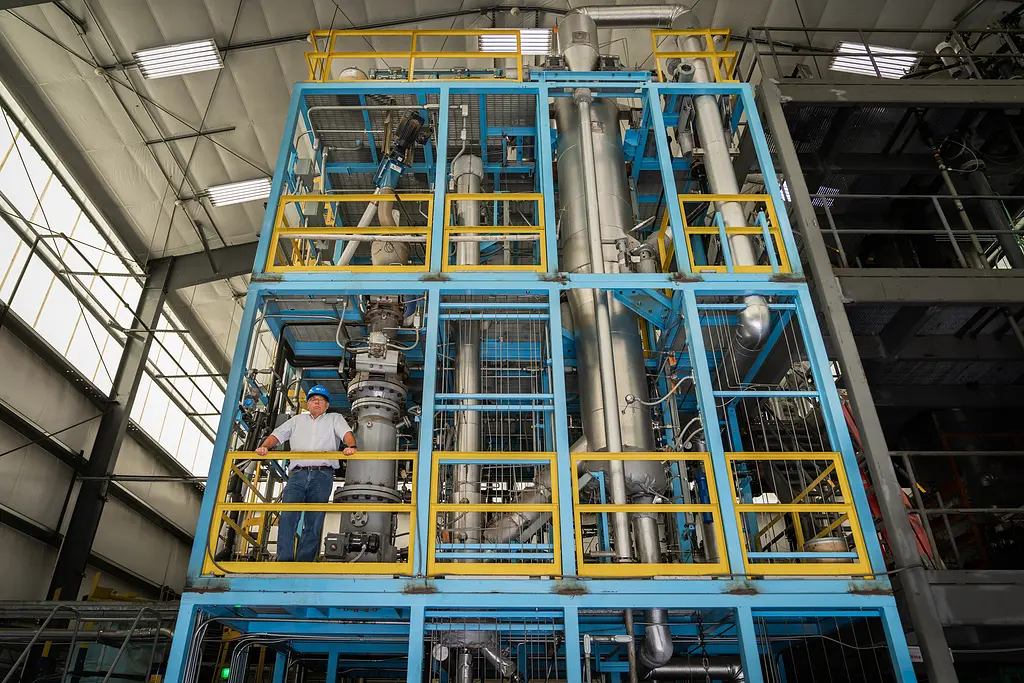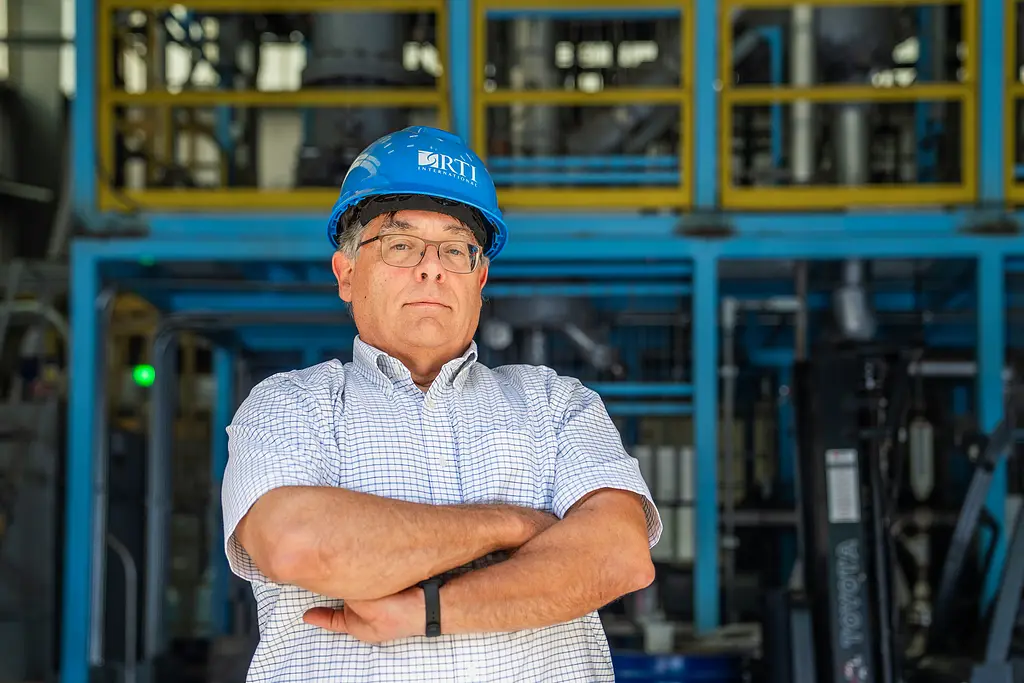Solving the clean energy puzzle
David Dayton is a chemist creating renewable, sustainable petroleum replacements.
David Dayton is a chemist creating renewable, sustainable petroleum replacements.

David Dayton has always loved puzzles. From crosswords to building his own jigsaw puzzles and miniature models as a child, he's "put a lot of stuff together." It's no surprise that he was drawn to the sciences and engineering from a young age.
Yet, Dayton considers the beginning of his passion for chemistry in particular to be "random and serendipitous": one afternoon while working at his parents' dry cleaning business, he watched a Styrofoam coffee cup dissolve into a puddle after he used it to catch leaking cleaning fluid. Seeing this transformation sparked a lifelong passion for understanding and harnessing the power of the invisible parts of our world.
While studying chemistry in college, Dayton immersed himself in research, often working in the lab five days a week. He went on to earn a PhD in physical chemistry at the University of North Carolina at Chapel Hill, followed by a postdoctoral fellowship at the Army Research Lab in Maryland.
Today, Dayton's work at RTI is an important piece of a particularly complicated puzzle that he's been working on since joining the institute in 2007: the development and commercialization of renewable biofuels.
As a Senior Fellow and the director of RTI’s biofuels program, Dayton researches the conversion of renewable organic materials, such as woodchips from local pine trees, into liquid fuels that are more sustainable than traditional petroleum-based fuel. The process Dayton studies, known as catalytic biomass pyrolysis, produces a petroleum replacement known as biocrude, which can then be refined into advanced biofuels: gasoline, diesel, and jet fuel. Although it sounds simple in principle, the work is far from easy.

"Every time gas prices go up, everybody looks to you and says, 'How come you haven't developed a better fuel yet that's cheaper than what we have right now?' And my response always is, 'It's called alternative fuels for a reason!' Because it's not mainstream, which means it's not the easiest, most cost-effective way to do this," Dayton says. "It's somewhat sometimes discouraging because often you fail more than you succeed. But when you do succeed, it just makes it all that much more enjoyable."
One successful venture that Dayton is particularly proud of was leading the development of RTI's Energy Technology Development Facility on the main campus, a 3,000 square foot space where RTI researchers and government and commercial clients can test and refine their technologies beyond the lab. The facility also houses a process that converts one ton of biomass into biocrude each day, enabling further research into how biofuels can reduce dependence on imported petroleum-based fuel.
But despite these scientific and engineering accomplishments, the clean energy technology puzzle seems to continually evolve.
"It's not all about just what goes on in the lab. You have to look at the implications and understand market forces, social acceptance, economic benefits, and environmental benefits," Dayton says. "You have to look at the big picture and how your work impacts the rest of the value chain." These challenges only push Dayton to work harder.
He has even found ways to channel his interest in problem solving outside of his research, leading him to become involved in several institute-wide initiatives at RTI where he collaborates with colleagues with diverse backgrounds and perspectives. "I enjoy the cross-institute conversations with everybody," he says. "I'm always fascinated by the diversity of experiences--what people's job functions are, how they execute their jobs, and how different it is from what I do."
He served on, and later led, a committee that helped finalize and implement RTI's leadership model Lead Forward, which empowers employees to communicate, collaborate, innovate, develop talent, act strategically, engage inclusively, and think globally in pursuit of the Institute's mission to improve the human condition.

Dayton was also appointed by former President and CEO Wayne Holden to serve as RTI's Research Integrity Officer, where he works with the Ethics Office to evaluate instances of scientific misconduct and ensure that RTI's scientific integrity is upheld. "It's a quiet, unassuming role," Dayton says, and it meshes well with one of his scientific mantras: Don't do what you can do, do what you should do.
"There's a lot of things that can be done [in research]. You can measure things. You can get numbers. You can analyze data. You can collect data. But if you don't understand the meaning of it and you don't collect good data to solve a certain problem, it really doesn't matter. There's too many shortcuts you can take."
For Dayton, doing what he should do is not limited to good scientific practices. It involves applying his problem-solving skills to an increasingly urgent and complex clean energy puzzle that scientists, engineers, economists, policymakers, and communications experts have been working on for decades as our planet is increasingly affected by climate change.
"This really got started in the '70s when we had our first energy crisis in the U.S., so we've been at it for 55 years or so. But the petroleum industry has been around for over 100 years," he says.
Over that time, Dayton pointed out, the petroleum industry has invested many millions of dollars in infrastructure. Production and distribution facilities built for oil could eventually support the production and distribution of alternative fuels.
Renewed attention to climate change has prompted more involvement and interest in the work of biomass researchers, Dayton notes. And while biofuels may not solve the puzzle on their own, "anything we can do to help mitigate [climate change] is part of the solution to the problem."